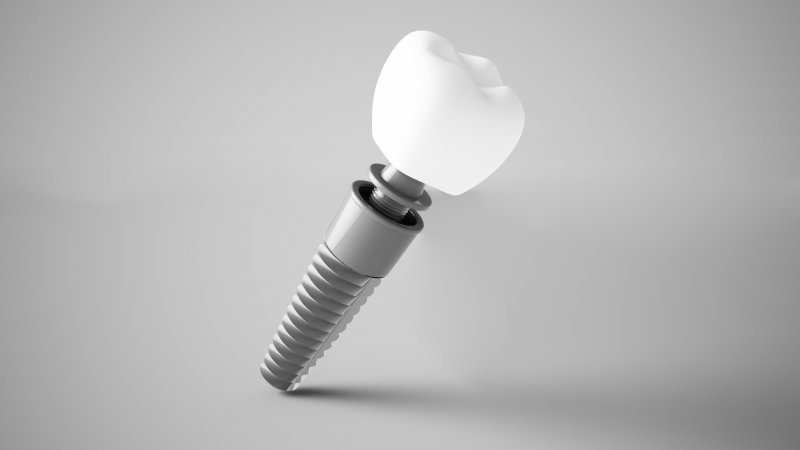
Dental implants are considered the pinnacle of dental restoration because they look and behave exactly like natural teeth. Because they are implanted directly into the jawbone, they can exert the biting and chewing force that traditional restorations like bridges and dentures cannot, allowing patients to enjoy all sorts of foods that would otherwise be impossible to chew. However, while dental implants are strong, they are not invincible. Here are three lifestyle changes that can prevent your dental implants from failing.
Practice Proper Oral Hygiene
Even though dental implants are immune to tooth decay, they still require proper oral hygiene to remain healthy. Gum disease increases the likelihood of implant failure because it leads to bone erosion and a receding gumline while also hindering the healing process. A solid daily oral hygiene regimen includes brushing, flossing, and rinsing with antibacterial mouthwash. Be sure to brush at least twice a day, once after breakfast and once before bed. Using a fluoride toothpaste and a soft-bristled toothbrush, gently brush your teeth using short, circular strokes for two minutes each time.
Flossing is just as important because it can clean plaque and food debris from the places between teeth where a toothbrush cannot reach. Antibacterial mouthwash will prevent oral infections by killing more than 99% of the germs that cause gingivitis and gum disease. It is also crucial to keep up with regular dental appointments so a dentist can monitor your oral health, advise you on better hygiene practices, and correct any issues in their early stages before they become larger problems.
Kick the Tobacco Habit
It seems like they discover more reasons why smoking is bad for you every week. Tobacco use, whether smoked or chewed, is one of the worst things you can do for dental implants and one of the leading causes of implant failure. When you inhale smoke, your gums harden to defend themselves against it, and your blood vessels constrict as a result of the nicotine. Both of these effects hinder the healing process, making it more difficult for your dental implant to fuse properly with your jawbone and more likely for the site to become infected.
Even after your implant is fully healed, smoking can cause problems with them further down the line. Since you have to quit for a few months to get implants in the first place, why not use the opportunity to drop the habit for good?
Eat Right and Exercise Regularly
If you want your implant to heal as well as it possibly can, proper nutrition and regular exercise can provide your tissues with the raw materials and stimulation they need to do the best job they can. Not only will increased circulation and good nutrition help the healing process, but it will also keep your whole body in good health. This can prevent the need for medications or the development of health conditions like diabetes or hypertension that might hinder the healing process.
With proper care, your dental implants can be an investment that lasts a lifetime. By adjusting your lifestyle, you can ensure that your implants heal properly while also taking command of your overall health.
About the Author
Dr. Karl Arakelian earned his Doctor of Dental Medicine from the University of Pennsylvania in Philadelphia before completing a General Practice Residency at Tufts-New England Medical Center. He is a member of the Massachusetts Dental Association and has accrued over a thousand hours of continuing education through organizations such as Spear Education. His office in Bradford, MA offers general, restorative, cosmetic, and pediatric dentistry in addition to dental implant treatments. For more information on caring for dental implants, contact his office online or dial (978) 373-0901.






